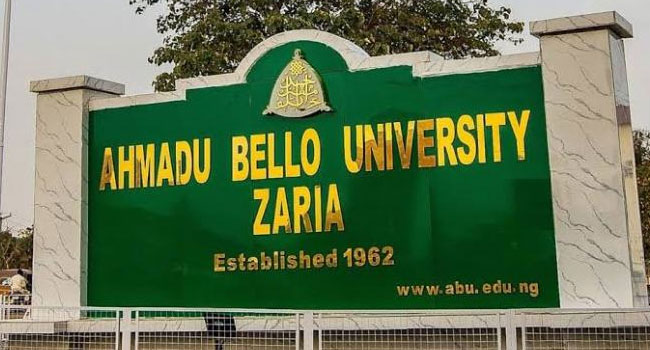
Ahmadu Bello University (ABU), Zaria, its vice Chancellor, Professor Adamu Ahmed, described the cost as “crippling and unsustainable” by the management of the institution’s management.
Professor Ahmed stated at a press conference held in his office to discuss the university’s 63rd anniversary that the high energy bill was preventing research and academic endeavors.
He revealed that ABU had taken bold steps toward self-reliance in order to shoulder the strain, encouraging innovation from its staff and students, and pursuing partnerships for sustainable energy solutions.
According to him, the Federal Government acknowledged the crisis by funding a TETFund project that would provide the institution with 10 megawatts of renewable energy last year and recognizing the institution’s need.
We’ve also reached out to our alumni, particularly those from the 1975 SBS class, who are already running solar-powered projects for one of our CBT centers, Ahmed said. We’re looking forward to continued support from outside while taking our destiny into our own hands.
The Vice Chancellor reaffirmed that ABU was established to bridge Nigeria’s continent, pointing out that Sir Ahmadu Bello, the late premier, intended for the university to educate both the North and South without breaking any racial or religious boundaries.
Read more: First Lady: We Must Challenge Teacher Shortage Due to Urgency
He lamented, however, that insecurity and poverty had hampered the development of the North and hampered educational growth, and ABU would now concentrate on addressing these issues through research, agriculture, and policy advocacy.
No other West African university, he claimed, had the capacity to spur the agricultural and economic recovery, despite the country’s vast agricultural assets, including the Institute for Agricultural Research (IAR), NAPRI, and the Faculty of Veterinary Medicine.
The Vice Chancellor also emphasized that using force alone to solve insecurity was not possible, and that dialogue, understanding, and community-based peacebuilding were key factors. He claimed that “we have the capacity, the research, and the networks.” “And we’re prepared to take the lead in finding long-lasting solutions.”
Professor Ahmed said the occasion gave him a chance to reflect on Sir Ahmadu Bello’s founding principles, which led to the establishment of the university and, consequently, the entire country. The VC said, “He envisioned an institution that was united by service, excellence, and unity.”
He noted that ABU, the largest university system in sub-Saharan Africa, has grown from its humble beginnings in 1962, when it had only four faculties, 15 departments, and 426 students. It now has 18 faculties, 110 departments, seven institutes, four colleges, and 17 research centers.
Ahmed claimed that ABU had won awards for internationalization and diversity, and that the Times Higher Education had named it Nigeria’s top public university in 2025. He continued, one of only three Nigerian universities to place in the QS 2025 World University Rankings.
He disclosed that the university has also received three more than $ 15 million grants from the World Bank’s Centers of Excellence and a $ 5 million Horizon grant for a project developing artificial intelligence to make microscopes more effective for diagnosing neglected parasitic diseases.
He claims that ABU’s staff and students have also registered more than 30 patents, including those relating to crude oil refining technologies and renewable energy sources, both domestically and internationally. These accomplishments demonstrate the university’s relevance for international research.
The VC expressed concern that sustainability is still threatened by funding constraints, brain drain, and infrastructure decay. He promised to support self-reliance by increasing ABU’s investment in digital learning, research commercialization, and start-up incubation.
He urged the university’s extensive alumni community, which he called “ABU’s greatest strength,” to support the institution through endowments, annual giving, and donations, in order to uphold the institution’s founding spirit of service.
Source: Channels TV

Leave a Reply